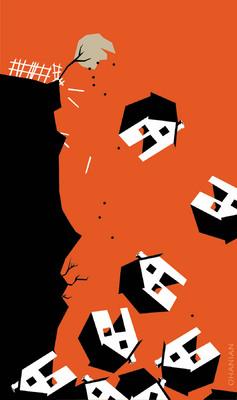- MENU
- HOME
- SEARCH
- WORLD
- MAIN
- AFRICA
- ASIA
- BALKANS
- EUROPE
- LATIN AMERICA
- MIDDLE EAST
- United Kingdom
- United States
- Argentina
- Australia
- Austria
- Benelux
- Brazil
- Canada
- China
- France
- Germany
- Greece
- Hungary
- India
- Indonesia
- Ireland
- Israel
- Italy
- Japan
- Korea
- Mexico
- New Zealand
- Pakistan
- Philippines
- Poland
- Russia
- South Africa
- Spain
- Taiwan
- Turkey
- USA
- BUSINESS
- WEALTH
- STOCKS
- TECH
- HEALTH
- LIFESTYLE
- ENTERTAINMENT
- SPORTS
- RSS
- iHaveNet.com

Q: I am 64 years old and had hoped to retire at the end of this year.
My plan is to move to another state to live near my daughter and her family. The development I want to move into is age restricted (55 and over).
I currently live in a townhome that I paid
Today, townhomes in my subdivision are selling for only
Because of the recession and housing crisis, I'm not planning to work until the end of 2010.
If real estate prices have not greatly increased, should I go ahead and sell my townhome here at a loss, because I can buy into the new community at a substantial savings?
In other words, should I consider it a "wash"?
A: It's really difficult to sell high and buy low -- unless you're moving to a different part of the country or from a neighborhood that has appreciated greatly to another that has not.
You should consider what's best for you in the short term and long term. If prices had gone up and you had sold at the height of the market, you might have been buying at the high of the market for the new home in the age-restricted community.
Only you can make that decision, but it seems that you are basically at an even-trade position for the property you want. You may have to come to the table with some extra money to close if you have a mortgage balance on your current home that's higher than what you can now get for the property.
But if you can sell your home for just a little less than you paid, while paying a lot less for your new home (which seems to have had a bigger drop in price), you may wind up ahead of the game.
I'd try to sell soon. If you try to wait for a better price point, you might find that the property you want to buy has also jumped in price.
Q: I just felt a need to call attention to the housing problem on the Treasure Coast in Florida (and nationwide, to be honest).
People are complaining left and right about all of the abandoned homes in their neighborhoods and the declining values of their properties. Why doesn't the government take into account that there are a lot of people out there who made some bad choices earlier in their lives and consequently have credit scores around 500.
These same people have been renting homes for many years, paying anywhere up to
This would help clean up the neighborhoods and in turn also help out with the property values? I think that this is something that should be looked into.
A: You bring up several excellent points. As many real estate investors as there are, there is a huge supply of foreclosed homes. Even one foreclosed home in a neighborhood has the potential to bring down everyone else's home prices substantially. And, once you get several vacant foreclosed properties in a neighborhood, well, it's an open invitation for trouble.
Cities across the country recognize the problem of vacant foreclosures and are now instituting new local laws and rules requiring homeowners (whether individuals or mortgage lenders) to register vacant homes and pay a fee. They're requiring banks and mortgage servicing companies to step up and take care of these properties, mowing the lawns, and maintaining them so they don't become meth labs, heroin dens or just neighborhood blight.
The Obama administration has proposed a new program to rent foreclosed homes back to the former owners just to keep them in their homes for the time being. It should be voted on soon.
I'll follow up on this issue as it continues to develop. Thanks for your comments.
Q: I have been trying to refinance my loan since February. We paid the fees asked of us and were told we qualified for the 105 percent mortgage refinance.
But now, five months later, the value of our property has dropped again. We were told we no longer qualify for a loan. But isn't there a program that allows you to refinance if your loan is up to 125 percent of the value of the property? We would definitely qualify for that, but we were told it was only being talked about and nothing was in the works yet.
A: The rules have changed many times since February, and are still changing. The good news for you is that the 125 percent home loan-to-value ratio for refinancing is in effect for those whose loans are securitized by
You can find out more at MakingHomeAffordable.gov. This plan was initiated by the Obama administration to assist people in your situation. The Making Home Affordable plan, also known as HASP, is there to assist homeowners whose home values have dropped and need lower interest rates.
Traditionally, a lender might only want to lend or refinance up to 80 percent of a home's value. This requirement freezes out thousands of homeowners who have seen the value of their home drop precipitously during this recent housing market meltdown.
To find out more about the plan, including its restrictions, visit the Web site MakingHomeAffordable.gov.
After educating yourself on your options, call your lender back to discuss your situation.